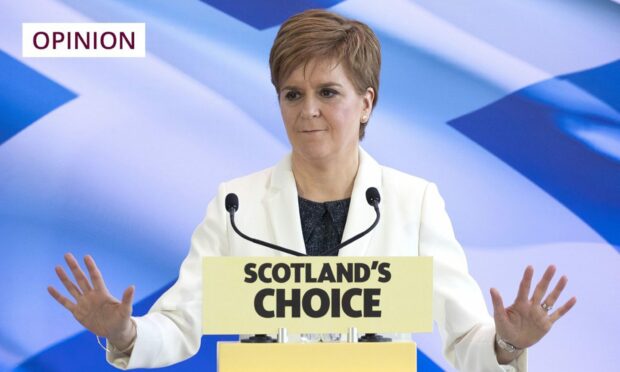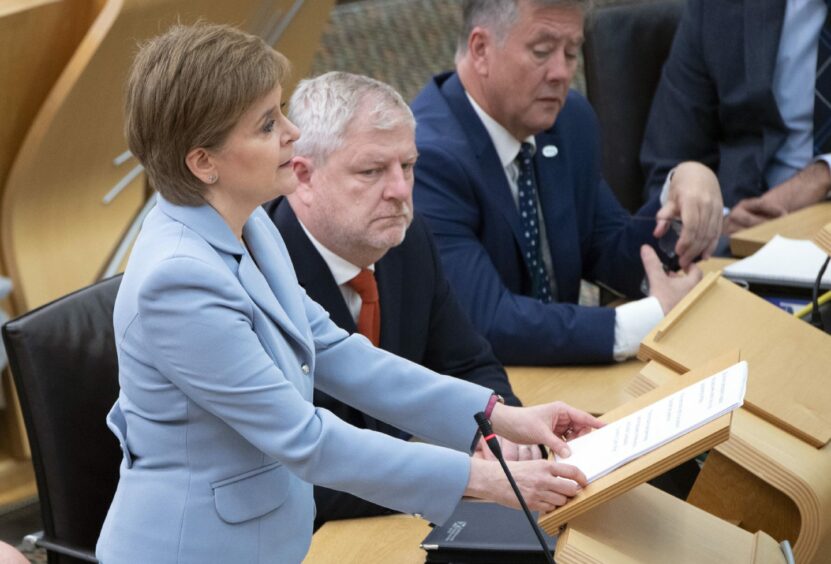Less than a decade after the last vote, the Scottish people will again be asked to decide this country’s constitutional future on October 19 next year. Or will they?
The truth is for this referendum to happen there are more hurdles to overcome than the Grand National field faces at Aintree.
In a strategically thrown curve ball, Ms Sturgeon is looking to the Supreme Court to determine whether the Scottish Parliament can legitimately hold a vote on independence without permissions from Westminster.
And if that avenue closes off, as many expect it might, the SNP will fight the next general election on independence alone – rather fancifully describing that poll as a de facto referendum in its own right.
Even if the shorthand version of the new IndyRef plan comes to pass, the next year and a half will be paralysed by constitutional debate.
But if it is the longhand version, that discourse will run for years.
It is legitimate therefore to ask where other matters of national importance – improving healthcare outcomes and wellbeing, raising educational attainment and dealing with the pernicious impacts of the cost-of-living crisis – now sit in the political pecking order.
Yesterday in Parliament a roundtable was held about the drug crisis which has claimed so many lives in Dundee.
A debate in the Chamber was expected to follow.
But it was bumped at the last minute on the day of the independence announcement.
Due to the First Minister’s statement on her referendum bill the debate tonight on Scotland’s drug deaths has been postponed.
— Michael Marra MSP (@michaeljmarra) June 28, 2022
That is an inauspicious start.
Nicola Sturgeon entered politics to push for independence.
That it remains her aim – and that of her party – is entirely legitimate.
But there are many other plates that must continue to spin while she charts a course to another referendum.
Anything less will be an abrogation of her government’s responsibility to the people of Scotland.












Conversation